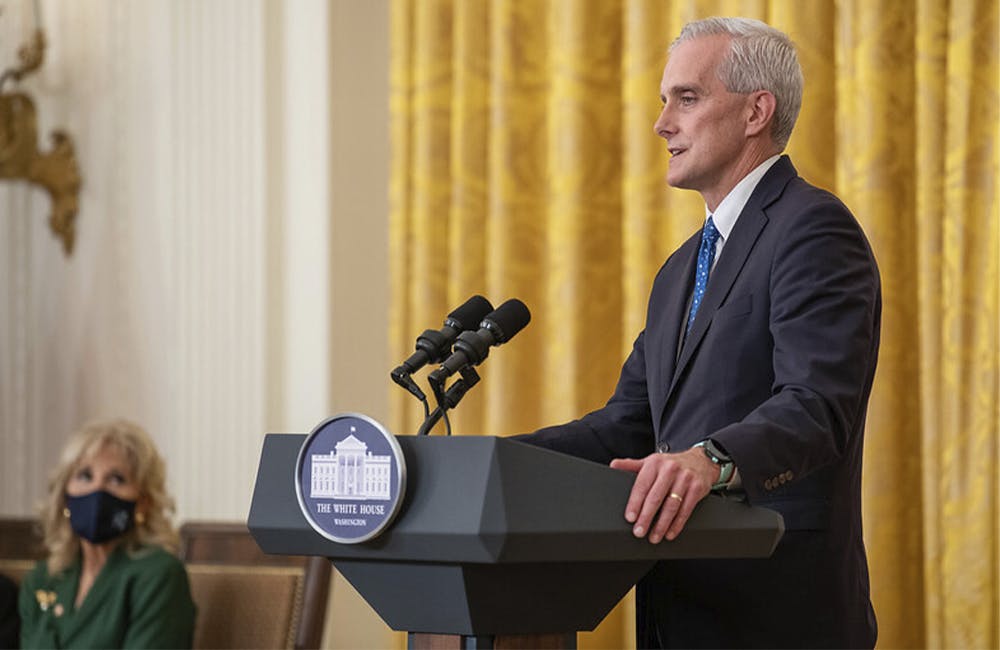COVID Surge Impacts VA MISSION Act Deadline

Recent surges in the COVID-19 pandemic is resulting in nationwide uncertainties around in-person interactions and working environments. The Department of Veterans Affairs is one of many agencies seeing impacts to its tech programs. For one, it recently paused implementation of its electronic health record at a new health care cite. Now its also pushing some health care infrastructure improvements via the MISSION Act to March.
VA Secretary Denis McDonough cited workforce absences and safety concerns around in-person VA meetings and town halls as the primary reasons for this delay.
First signed into law on June 6, 2018, and formally launched in June 2019, the MISSION (Maintaining Internal Systems and Strengthening Integrated Outside Networks) Act was designed to improve VA health care through revitalizing its own infrastructure while launching a new Community Care Program that expands the healthcare options available to America’s veterans.
These reforms would have come on the heels of recent overhauls to VA’s community care program, including the centralization of its payment functions within the Veteran Health Administration’s finance office in October 2021.
Much of the agency’s health care reform intentions rest on upgrading VA’s medical facilities. McDonough has stated that modernizing VA health care infrastructure, which often lags behind that of the private sector, remains one of his foremost priorities.
“The median age of a private hospital in the U.S., on a national basis, is roughly 11 years old. The VA portfolio has a median age of 58 years old, and 69% of VA facilities are older than 50 years. So when you think about all the technology and everything else that we’re moving into modern hospitals, you can see why we’re so concerned about this footprint. A lack of modern infrastructure actually limits our ability to meet the evolving health care needs of veterans,” McDonough said at an April 2021 press conference.
The to-be-announced VA reforms will likely center on sweeping infrastructure changes, including the physical modernization of its nationwide hospital and care center network.
In subsequent remarks to the press, McDonough has affirmed his commitment to improving VA’s physical infrastructure in coordination with the to-be-established Asset and Infrastructure Review (AIR) Commission. While AIR nominees have been submitted, the Senate has yet to formally approve the nine appointees who will serve on the committee.
VA intends to deliver a report on the planned reforms to the VA health care system and physical infrastructure by the new deadline of mid-March irrespective of whether the AIR appointees are formally confirmed by this time.
This is a carousel with manually rotating slides. Use Next and Previous buttons to navigate or jump to a slide with the slide dots
-

Accelerating Modernization to Boost Pentagon’s Efficiency
Nutanix’s Greg O’Connell shares how disruptive technologies like the company’s AHV and Move are helping federal agencies modernize IT infrastructure.
9m watch -

CMMC Needs to Adapt to Evolving Cyber Threats
Katie Arrington says DOD needs to strengthen dynamic cybersecurity in the age of AI and quantum.
13m listen -

Retired Air Force Intelligence CIO: ‘Software Is Everything' to Modern Infrastructure
Modernizing defense infrastructure means breaking away from aging legacy systems toward scalable platforms.
5m watch -

How Federal Agencies Can Overcome Barriers to Tech Adoption
AI is reshaping the federal landscape, offering agencies a way to boost operational and cost efficiency and augment the workforce. However, speedy adoption remains a challenge.
8m watch Partner Content








